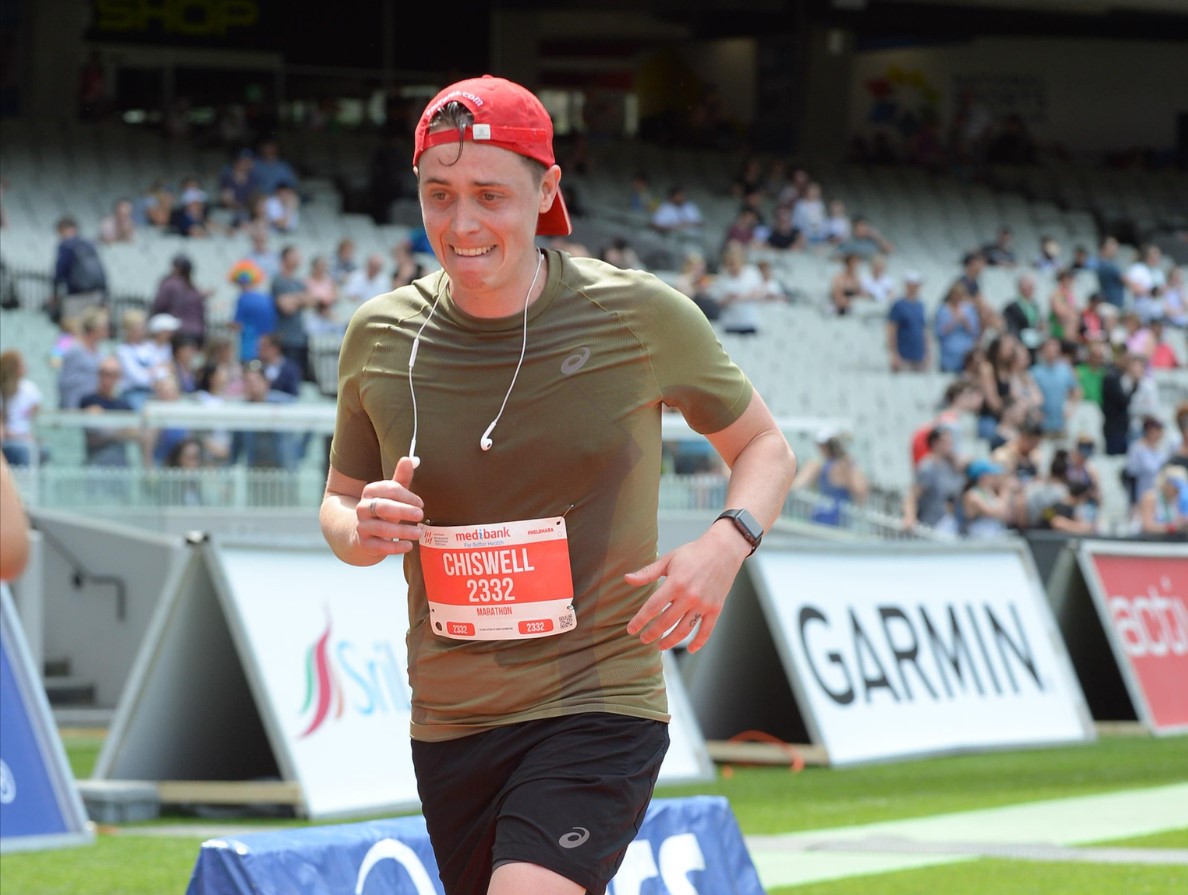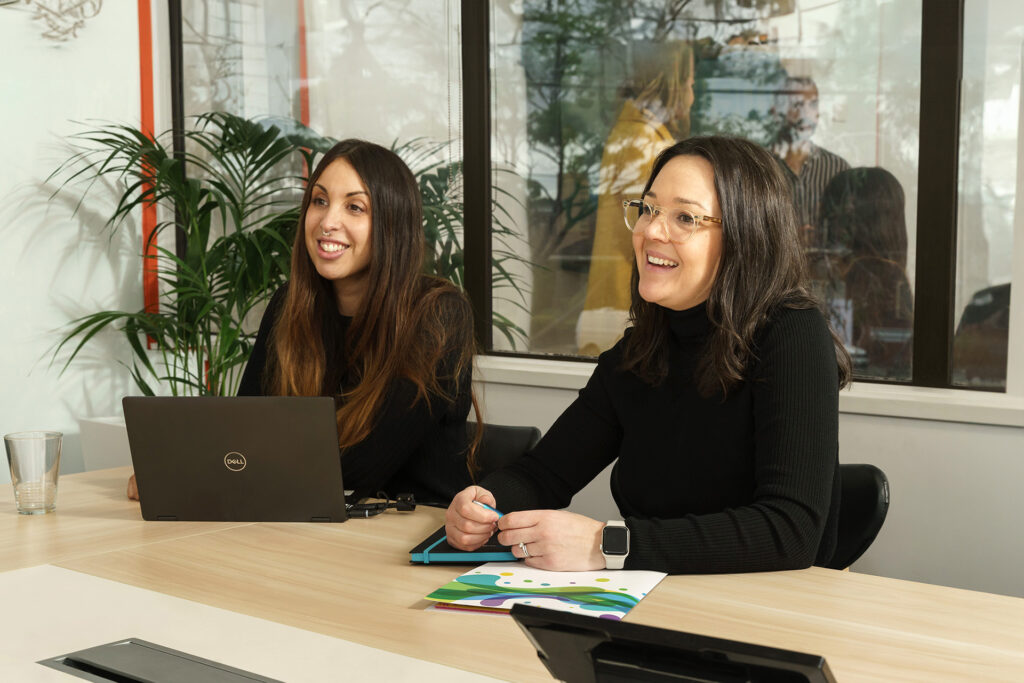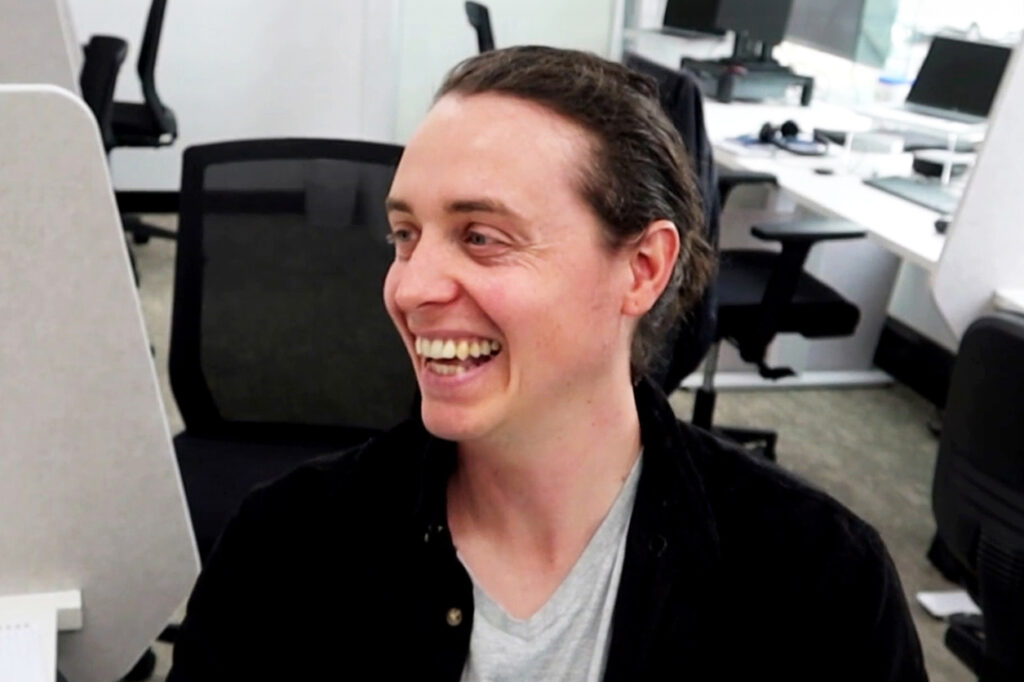Passionate about men’s mental health and wellbeing, Mike believes we need more men with lived experience in the sector. This will help decrease stigma by increasing the visibility of men in these traditionally female roles — and show that men are not alone or weak for struggling. With physical exercise playing a big part in Mike’s mental health recovery, he’s reminding men this Men’s Health Week to take care of themselves in a holistic way. As a keen runner and cyclist, Mike offers some tips on keeping your body and mind fit.
“More and more men are beginning to realise and agree we should be talking about our mental health more. When you open that door with another guy, and start talking about feelings, it’s so encouraging to identify that need and want in other guys to learn to deal with their shit a bit more,” says Mike Chiswell, a Peer Wellbeing Navigator for Wellways at the Mental Health and Wellbeing Local in Frankston.
“Having more men in the peer workforce allows for more men to recognise that they aren’t alone or weak for experiencing these challenges. There are strategies and tools that can be incredibly helpful and exploring these together can be very rewarding.” Mike has come a long way after growing up ‘feeling embarrassed and weak’ for ‘always having big feelings’ that he thought ‘other guys’ don’t have’.
Reflecting on his past, Mike contends that there are too many men experiencing mental health challenges that feel like they aren’t allowed to express it — and this can be a very lonely experience. Ironically, through his peer work in mental health, he’s found that many men are going through similar experiences. “Big feelings are normal. Let’s normalise talking about them, too!”
“My passion is in peer work. Which is not about fixing someone else’s problems, but walking alongside them, as they discover what recovery looks like to them. The best thing about my job is all the open discussions I have about mental health – often just two guys having a coffee and talking about big feelings!”
Dissatisfied with working in retail management and HR, Mike knew he wanted to help others on their own mental health recovery journey. He began a Peer Worker Cadetship with Wellways last year – which allowed him to continue earning while qualifying as a Peer Worker. “Changing careers as a guy is terrifying. You might be the provider for your family or have people who rely on you and your income. Knowing I’d be earning while I was learning was a huge weight off my shoulders,” Mike reveals.
When asked what advice Mike would give to other men thinking of a career change in mental health, he said, “It’s scary, but if you need your work to align with your personal values, and you want to be part of a refreshed mental health workforce, you’ve got to take the leap. If more men started talking about mental health and supporting each other, the culture will change, and we will see a rapid decline in suicide.”
Mike has a lived experience of mental health challenges and is no longer reluctant to share his diagnosis with work colleagues and friends. Over the years, he tried a range of medications and saw a Psychologist for Cognitive Behavioural Therapy (CBT). “I made the personal decision to stop medication, because I had the agency to try something alternative. For me, that was exercise (along with Psychology and Counselling support),” he explains.

“Running was such a simple strategy, that when you’re in it and those feelings are so big and consuming, it seems ridiculous that something so simple could be so helpful”. Recovery for Mike was slow, but through regular running, and creating small habits that were easy to integrate into his daily life, the fog began to clear.
One of Mike’s personal breakthroughs came in 2019 when he ran the Melbourne marathon. “I remember thinking, I can do things with this diagnosis, I can still achieve things!” Exercise is something he loves to share about because it has been the most useful tool for increasing his mental health resilience over the years. However, after being given a road bike by a colleague, Mike admits that he’s been cycling far more often than running.
“I currently help run a walking group and have enjoyed seeing a couple of our participants benefit from getting out for a walk and surprising themselves. I had another participant that wanted to use our time to actually go for a run and stay on top of that routine so that’s what we did. It has been rewarding celebrating these small wins.”
Being Men’s Health Week, we asked Mike for his top tips to make exercising a regular habit. Here’s what he advised:
- Start small and don’t compare yourself to what others are doing.
- Find a mate to exercise with. If no one is around, join a group. ‘Park Run’ is a fantastic community to start with.
- Be kind to yourself, some days you might just need to take a beat and that’s fine. Some days you will be able to challenge yourself and get it done. New habits and routines are difficult to implement, it takes failure and time to get there but it is worth persisting.
- Get your sleep right. Get off socials before bed and create a relaxed evening routine.
Wellways Victorian Peer Cadet Program
structured, supportive entry into the Lived Experience Workforce, the Wellways Victorian Peer Cadet Program is for you! This program offers paid on-the-job training and development to complement your studies, setting you up to thrive in the Peer Worker role.

